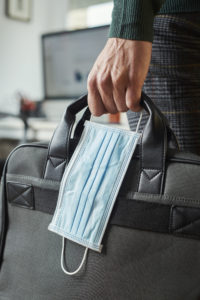
And that may mean you’ve got to go back to work.
Sure, you might be champing at the bit to start receiving a paycheck and finding a meaningful way to start your day, but it’s also fair to be fearful. After all, the virus hasn’t gone anywhere.
But if you are called back to work, you’ll have to go. Taking precautions to limit the chance of infection is likely your top priority, so here are a couple of ways you can do it.
First, purchase a facemask. You’ll want to have at least one—but preferably more—available in case your employer is not supplying them. Having a personal hand sanitizer bottle is also recommended. And, of course, maintain social distancing.
If your employer is not supplying a safe environment that has been outlined by local authorities, explore your options.
Focusing on your immune health could also be worthwhile. A healthy immune system helps your body fight illness and limit its impact. Getting adequate sleep, daily exercise, and focusing on a healthy diet is central to immune health.
Eating plenty of fruits and vegetables and spending 30-minutes per day exercising may help.
If you’ve got an existing condition, like high blood pressure or type-2 diabetes, that can boost your risk for COVID, pay even more attention. Prioritize the above advice and do your best to keep up with all of your existing treatments.
Another concern is mental health. If you’re heading back to work, it will likely be a very stressful situation. A different working environment and the reality of a deadly pandemic can be a lot to handle. Practicing meditation or breathing exercises may help.
Deep abdominal breathing, yoga, mindfulness, or utilizing a stress-reduction app can all help relax your mind.